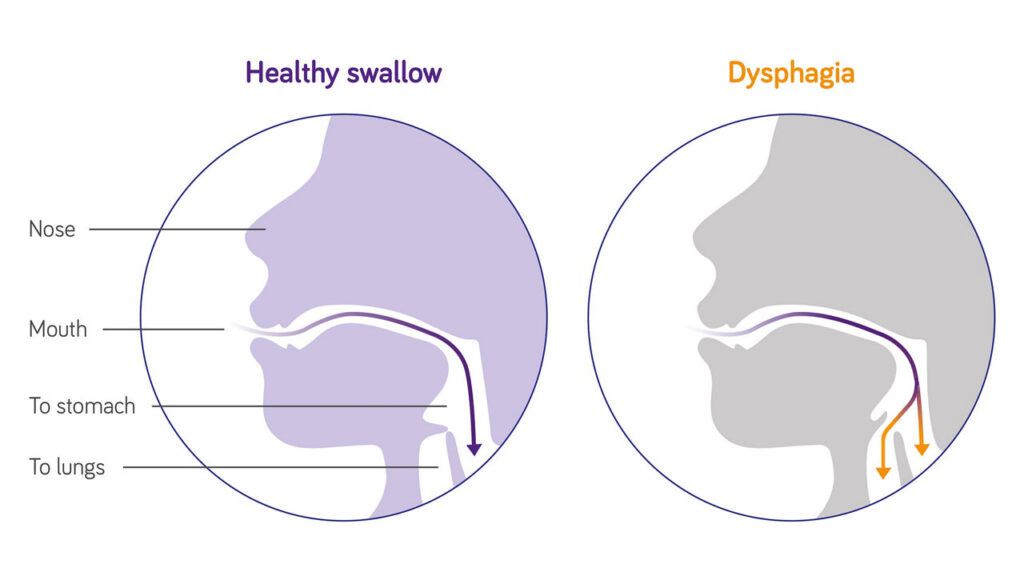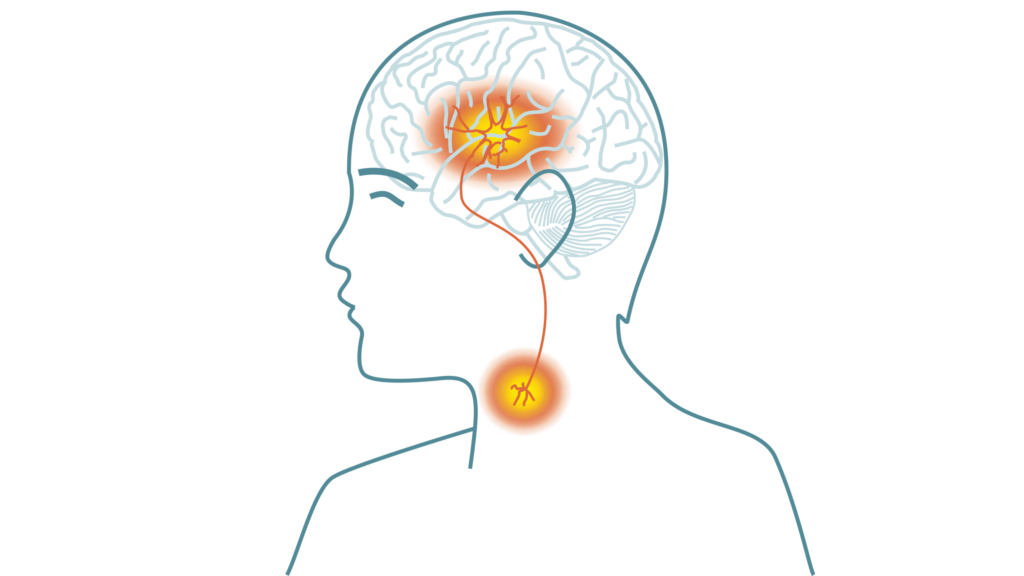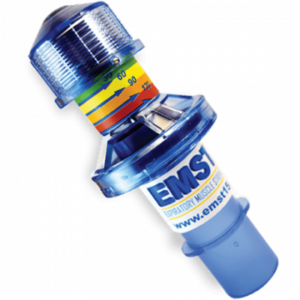
Dysphagia is the medical term for difficulty in swallowing. Swallowing is a vital process in the human body since it serves the critical functions of providing nutrition and hydration. A loss in the swallowing ability can have a significant impact on an individual’s quality of life.
In this article, we will discuss about
What is dysphagia?
Cause of dysphagia after stroke
Recovery techniques for dysphagia
What is dysphagia?
To understand dysphagia, we first need to observe and learn how a normal swallowing process works in a human body.
There are 3 stages to swallowing :
- Oral phase
- Pharyngeal phase
- Oesophageal phase

Dysphagia can have a significant impact on an individual’s quality of life, presenting various issues :
- Poor mealtime experiences
- Reduced social interaction
- Malnutrition and dehydration
- Respiratory consequences (Aspiration and coughing)
- Anxiety or fear while eating food / drink
Causes of dysphagia after stroke
A stroke or a cerebrovascular accident involves damage to the cortical areas or directly to the brain stem and since swallowing is a largely complex process involving both the muscles and cranial nerves, dysphagia is a common phenomenon in such patients. About 50% of stroke patients are affected by dysphagia.
As stroke affects part of the brain, the nerves are impaired and the co-ordination with the swallowing muscles is lost. Therefore, the individual loses the ability to control the muscles during swallowing which lead to further problems such as aspiration pneumonia.

Aspiration pneumonia is one of the highest causes for mortality in stroke patients. Hence, it is quite essential for stroke patients to undergo appropriate rehabilitation and recover from dysphagia to increase survivorship and lead a better quality of life.
Recovery techniques for dysphagia after a stroke
To regain the swallowing ability after a stroke, there quite a few things that can be done by the individual.
Connect with a speech and swallowing therapist

Speech and swallowing therapists are clinical professionals who specialize in evaluating and treating swallowing problems. They have the ability to conduct swallowing studies and develop a rehabilitation plan according to the individual’s severity of the problem.
Swallowing exercises and muscle strengthening

Swallowing exercises such as chin tucks and certain postural techniques can help an individual train the muscles to improve swallowing. In addition, the patient can also utilize EMST – Expiratory muscle strength training to specifically train the muscles involved in swallowing and quicken the dysphagia recovery. This can be done by using the EMST 150 or EMST 75 Lite device, and practice daily with this device to get the fastest results with swallowing.
Diet modifications

Making dietary changes or diet plans could also benefit post stroke patients to minimize the risks of aspiration and choking from food/drinks. This includes trying out different consistencies of foods and liquids until the swallowing ability is improved. The best way to go about this is by working with a swallow therapist and a dietician.
Dysphagia after a recent stroke is frightening, but on the bright side, the majority of these patients recover within 2 weeks of treatment. Evaluating the swallowing and developing a therapy plan is essential to expedite the recovery.